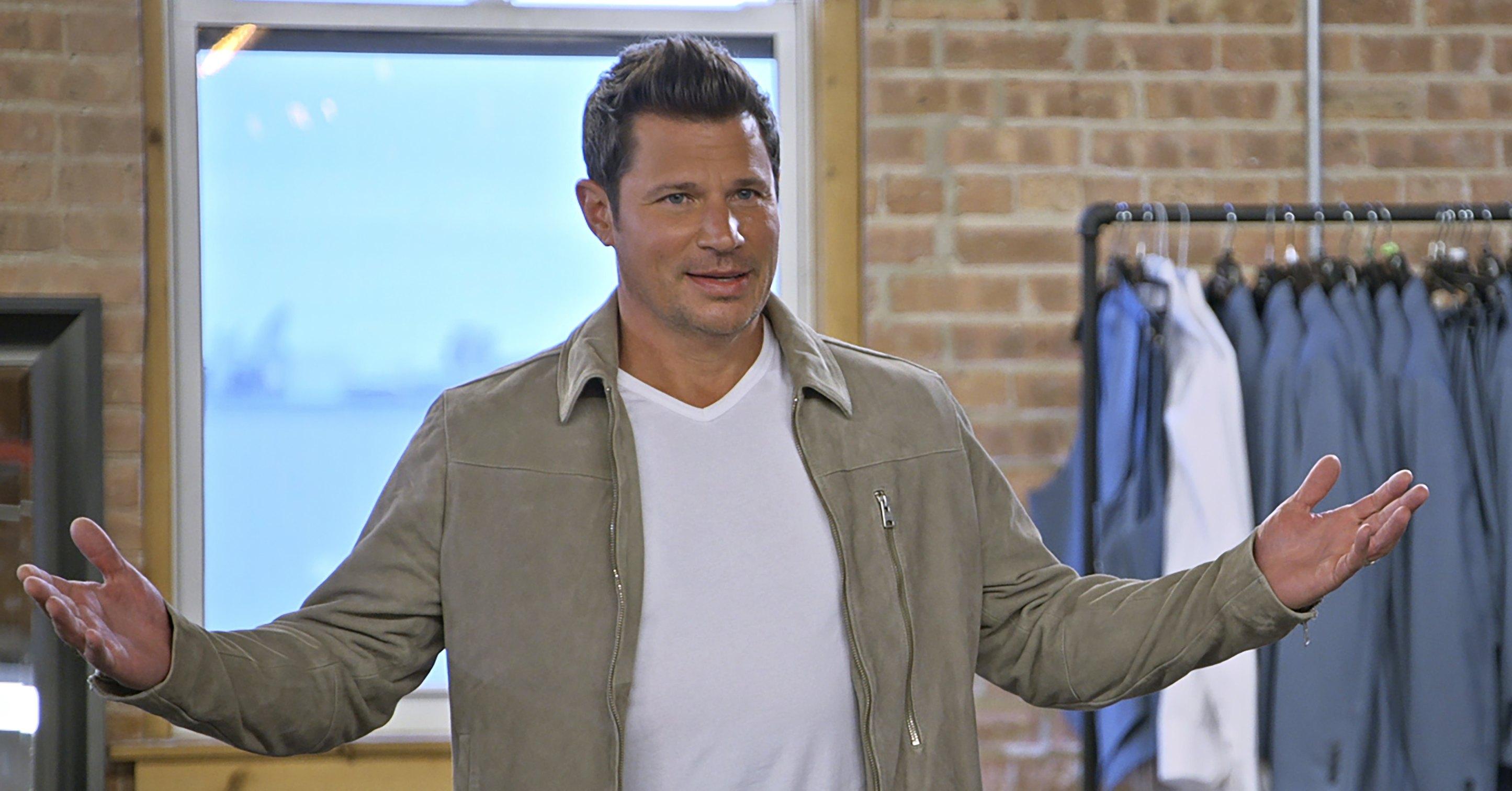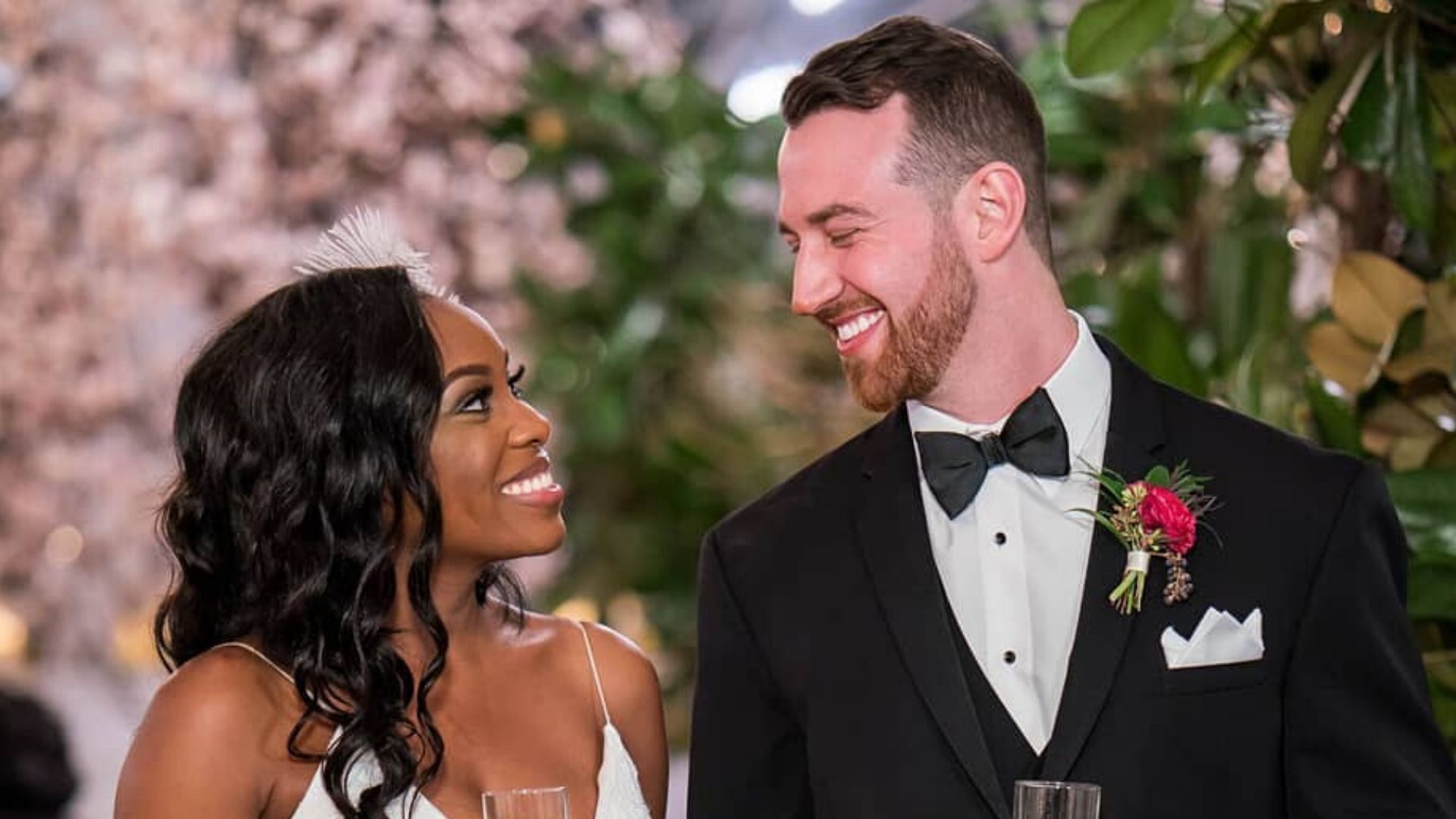Exploring The Legal Challenges Surrounding Netflix's Love Is Blind
Love Is Blind has become a focal point of public discourse and legal scrutiny, with recent lawsuits capturing the attention of both fans and critics. As one of Netflix's most-discussed reality dating shows, the series has ignited debates about relationships, trust, and the authenticity of love in a controlled environment. This article delves into the latest developments surrounding the Love Is Blind lawsuit, offering a comprehensive analysis of the situation.
Since its launch in 2020, Love Is Blind has captivated global audiences with its groundbreaking concept of blind dating in soundproof pods. However, behind the scenes, the show has encountered numerous legal challenges that have raised questions about its production practices, participant agreements, and ethical considerations. These controversies have sparked widespread discussions about the realities of reality television.
This article aims to provide an in-depth exploration of the Love Is Blind lawsuit update, covering its background, key details, expert insights, and potential implications. Whether you're a devoted fan or simply interested in the legal aspects of reality TV, this article will equip you with the knowledge needed to fully understand the complexities of the situation.
- Exploring The Life And Legacy Of Jeff Bezos Daughter
- Comprehensive Guide To Understanding And Managing Pettitis
Table of Contents
- Background of Love Is Blind
- Overview of the Lawsuit
- Key Issues in the Lawsuit
- Legal Precedents and Relevance
- Expert Opinions and Analysis
- Impact on Participants
- Effects on the Reality TV Industry
- Netflix's Official Response
- Future Outlook and Predictions
- Conclusion and Takeaways
The Origins of Love Is Blind
Love Is Blind, a revolutionary reality dating show, first premiered on Netflix in February 2020. The program quickly gained widespread popularity due to its innovative concept, where participants interact in soundproof pods, focusing exclusively on their emotional connection without visual distractions. This unique format aimed to emphasize the importance of genuine emotional bonds over physical appearances, resonating with viewers who appreciated its fresh perspective on love and relationships.
Despite its success, the show has faced criticism and scrutiny over the years. Questions about the authenticity of the relationships, the psychological impact on participants, and the production's handling of sensitive situations have emerged. These concerns have set the stage for the recent lawsuit, which has brought renewed attention to the show's practices and the ethical considerations of reality TV production.
Understanding the Production Process
The production process of Love Is Blind involves a meticulous casting procedure, rigorous filming schedules, and carefully crafted narratives designed to captivate audiences. Participants are required to sign detailed contracts that outline their roles and responsibilities. However, critics argue that these agreements may not fully disclose the potential risks involved, raising questions about transparency and participant awareness. Understanding the intricacies of the production process is essential in evaluating the legitimacy of the lawsuit and addressing the concerns raised by former contestants.
- Exploring The Life Of Teresa Weatherspoon And Her Wife
- Matty Healys Iconic Suits A Deep Dive Into His Fashion Legacy
An Overview of the Legal Battle
The Love Is Blind lawsuit revolves around allegations of misleading contracts, inadequate disclosure of risks, and violations of participants' rights. Filed by former contestants, the lawsuit accuses the production team of failing to provide comprehensive information about the show's format, potential psychological effects, and post-show support systems. These claims have ignited debates about the ethical standards of reality TV productions and the responsibilities of producers in safeguarding participant well-being.
Plaintiffs vs. Defendants
The plaintiffs in the lawsuit are former participants who claim they were not fully informed about the implications of joining the show. On the other hand, the defendants include the production company and Netflix, who argue that all participants signed thorough agreements and were aware of the show's requirements. This legal dispute highlights the complexities of balancing entertainment with ethical responsibility and participant protection.
Central Issues in the Lawsuit
Several critical issues are at the heart of the Love Is Blind lawsuit, including:
- Misrepresentation of the show's format in participant contracts, potentially misleading contestants about the nature of their involvement.
- Lack of adequate psychological support for contestants during and after filming, leaving participants vulnerable to emotional distress and long-term mental health challenges.
- Failure to disclose potential long-term effects on personal relationships, which can lead to significant strain and conflict for participants.
Each of these issues raises important questions about the responsibilities of reality TV producers and the rights of participants. Addressing these concerns is crucial for promoting transparency, fairness, and ethical practices within the industry.
Addressing Psychological Impact
One of the primary concerns in the lawsuit is the psychological impact on participants. Reality TV shows often subject contestants to high-pressure environments, which can lead to emotional distress and long-term mental health issues. Critics argue that Love Is Blind's unique format, which emphasizes emotional vulnerability, exacerbates these risks. Ensuring the well-being of participants and providing adequate support is essential in mitigating these challenges and upholding ethical standards.
Exploring Legal Precedents
The Love Is Blind lawsuit draws parallels with previous legal battles in the reality TV industry, such as the "Survivor" lawsuit and the "Big Brother" controversy. These cases underscore the importance of protecting participants' rights and ensuring ethical production practices. Understanding these legal precedents provides valuable context for evaluating the current lawsuit and informing future industry reforms.
Industry Standards and Ethical Considerations
Reality TV productions are governed by specific industry standards designed to safeguard participants' well-being. These standards include guidelines for contract transparency, participant care, and post-show support. The Love Is Blind lawsuit challenges the effectiveness of these standards and calls for stricter enforcement to ensure participant protection and ethical responsibility. Revisiting and revising these standards is essential in addressing the concerns raised by the lawsuit and promoting positive change within the industry.
Insights from Legal and Industry Experts
Legal experts and industry professionals have provided diverse perspectives on the Love Is Blind lawsuit, emphasizing the need for greater accountability in reality TV production. Many highlight the complexities of balancing entertainment with ethical responsibility, while others stress the importance of participant well-being and transparency. These insights contribute to a deeper understanding of the legal and ethical implications of the lawsuit and inform potential solutions.
Psychological Insights and Participant Well-Being
Psychologists specializing in media and mental health have expressed concerns about the potential harm caused by reality TV shows. They argue that participants may experience significant emotional distress due to the intense nature of these productions. These insights underscore the importance of addressing psychological well-being in the context of the lawsuit and promoting participant care throughout the production process.
The Participant Perspective
The Love Is Blind lawsuit has brought attention to the experiences of former participants, many of whom have shared their stories publicly. These accounts reveal the challenges faced by contestants, including emotional turmoil, public scrutiny, and strained relationships. Understanding the participant perspective is crucial in assessing the validity of the lawsuit and informing industry reforms. Listening to and learning from participants' experiences can help shape more ethical and participant-focused production practices.
Advocating for Improved Support Systems
Participants have called for enhanced support systems, including access to mental health resources and ongoing assistance after the show concludes. Advocates argue that these measures are essential for promoting participant well-being and preventing long-term harm. Implementing robust support systems can help mitigate the psychological impact of reality TV participation and ensure that contestants are adequately cared for throughout their involvement with the show.
Broader Implications for the Reality TV Industry
The Love Is Blind lawsuit has significant implications for the reality TV industry, prompting discussions about reform and regulation. As streaming platforms continue to dominate the entertainment landscape, ensuring ethical practices becomes increasingly important. The lawsuit serves as a catalyst for change, encouraging producers to prioritize participant rights and transparency in their productions.
Exploring Regulatory Measures
Industry regulators and advocacy groups are exploring potential measures to address the concerns raised by the lawsuit. These efforts may include revising contract standards, implementing mandatory psychological evaluations, and enhancing post-show support services. Such reforms could set a precedent for future reality TV productions and promote greater accountability and participant protection within the industry.
Netflix's Stance on the Lawsuit
Netflix has issued a formal response to the Love Is Blind lawsuit, defending its production practices and participant agreements. The streaming giant emphasizes its commitment to ethical standards and participant care, while acknowledging the importance of ongoing dialogue with stakeholders. Netflix's response highlights the complexities of navigating legal challenges in the entertainment industry and demonstrates a willingness to engage in constructive discussions about participant protection and industry reform.
Commitment to Future Initiatives
In response to the lawsuit, Netflix has announced plans to enhance its participant support programs and transparency measures. These initiatives aim to address the concerns raised by former contestants and industry experts, demonstrating a commitment to continuous improvement and participant well-being. By implementing these changes, Netflix aims to set a positive example for the reality TV industry and promote ethical production practices.
Predicting the Future of Reality TV
The outcome of the Love Is Blind lawsuit could have lasting effects on the reality TV industry. If the plaintiffs succeed, it may lead to significant changes in production practices and participant protections. Conversely, a dismissal of the lawsuit could reinforce existing standards, prompting further debate about their adequacy. Regardless of the lawsuit's outcome, the conversation surrounding reality TV ethics is likely to continue as audiences become more informed and discerning.
Long-Term Implications for the Industry
The Love Is Blind lawsuit serves as a pivotal moment in the ongoing dialogue about reality TV ethics. As producers navigate the complexities of balancing entertainment with ethical responsibility, the industry is poised for significant change. By addressing the concerns raised by the lawsuit and implementing meaningful reforms, the reality TV industry can promote greater transparency, accountability, and participant protection, shaping a brighter future for all stakeholders involved.
Final Thoughts and Key Takeaways
In conclusion, the Love Is Blind lawsuit represents a critical juncture in the reality TV industry, raising important questions about participant rights, ethical standards, and production transparency. By examining the key issues, expert opinions, and industry effects, we gain a deeper understanding of the complexities involved. As the legal process unfolds, it is essential for all stakeholders to engage in constructive dialogue and work towards meaningful change.
We invite you to share your thoughts and insights in the comments section below. Additionally, explore our other articles for more in-depth analyses of trending topics in entertainment and beyond. Together, let's continue the conversation and drive positive change in the industry.



Detail Author:
- Name : Marisa Conroy
- Username : laney62
- Email : amie21@tillman.com
- Birthdate : 1990-04-21
- Address : 52573 Johns Highway Apt. 586 Sophiastad, VT 05009-7430
- Phone : 757.408.9220
- Company : Lubowitz LLC
- Job : Timing Device Assemblers
- Bio : Assumenda nemo ab cupiditate veniam odio alias iusto. Quia porro debitis consequuntur mollitia. Nihil id necessitatibus veritatis maxime numquam labore. Quam aperiam maiores aut veritatis.
Socials
twitter:
- url : https://twitter.com/schmidtf
- username : schmidtf
- bio : Et cupiditate voluptatem dolores. Quam ratione quo assumenda. Quisquam enim rerum alias molestias eaque.
- followers : 788
- following : 1657
instagram:
- url : https://instagram.com/franciscaschmidt
- username : franciscaschmidt
- bio : Itaque cumque temporibus dolores asperiores. Suscipit odit est ex voluptatem.
- followers : 4876
- following : 1185
facebook:
- url : https://facebook.com/francisca.schmidt
- username : francisca.schmidt
- bio : Voluptates voluptates repellendus rerum repudiandae architecto est iusto.
- followers : 1936
- following : 267